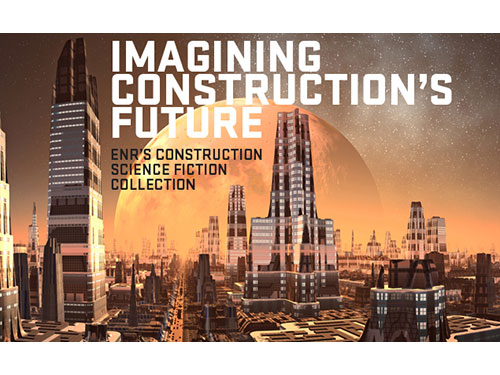Imagining Construction's Future

ENR asked its readers to open up their minds and take a shot at writing short fiction about the future of construction. The top selections and many honorable mentions are presented in this ENR Special Report.
The latest news and information
#1 Source for Construction News, Data, Rankings, Analysis, and Commentary
JOIN ENR UNLIMITEDCopyright ©2024. All Rights Reserved BNP Media.
Design, CMS, Hosting & Web Development :: ePublishing
